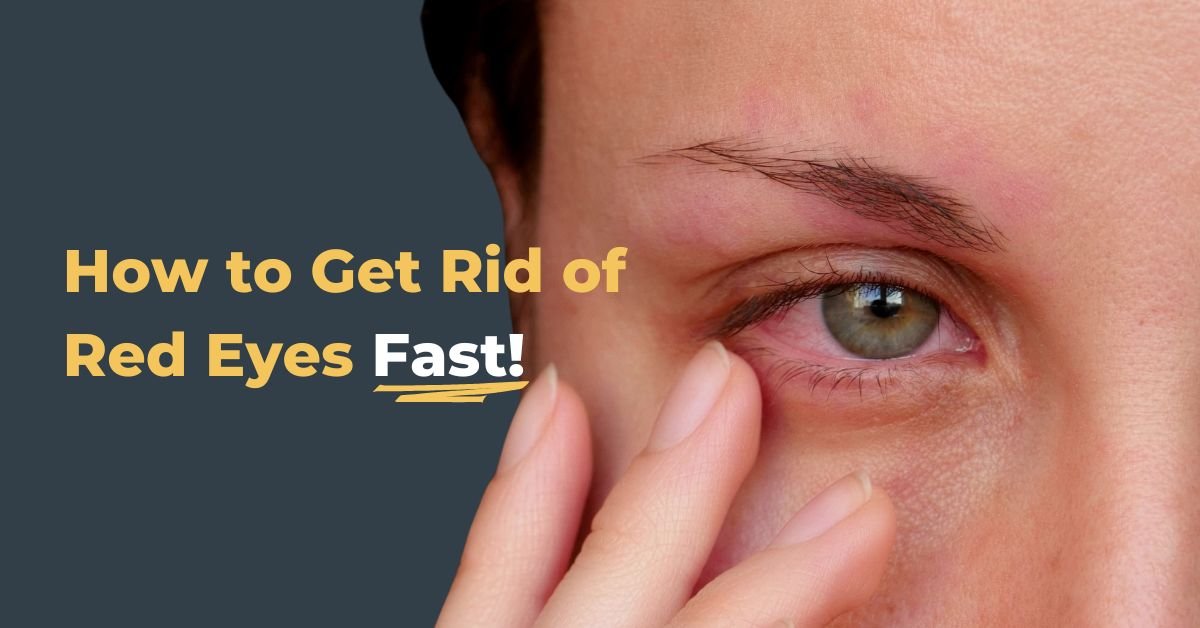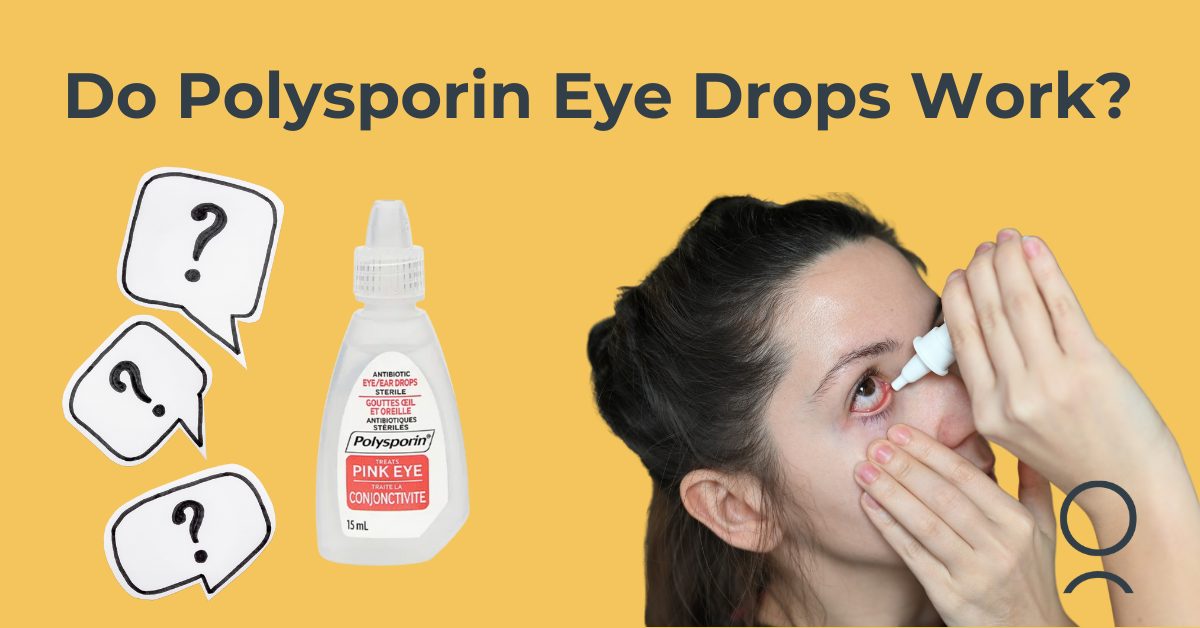Do Polysporin Eye Drops Work?
When your eyes are red, sandy, gritty, itching, burning or crusted shut, finding the right treatment can be crucial to getting you back to feeling your best. Polysporin eye drops have gained significant popularity in recent years for their widespread availability over the counter at your nearest pharmacy.
Polysporin eye drops are advertised for their ability to solve various eye conditions. But do they actually work? Are Polysporin eye drops safe for you to use? In this blog post, we will explore what exactly Polysporin Eye Drops are, their ingredients, efficacy, and when it is recommended to consult an eye doctor. Additionally, we will explore whether eye doctors recommend Polysporin Eye Drops and how they compare to prescription eye drops.
What are Polysporin Eye Drops?
Polysporin Eye Drops are an over-the-counter (OTC) product that are intended to provide relief from common infections. These drops contain medicinal ingredients that are used to alleviate symptoms associated with bacterial conjunctivitis, commonly known as "pink eye." Polysporin Eye Drops are easily accessible and widely used because they are available at the pharmacy without a prescription.
What ingredient are in Polysporin Eye Drops?
Polysporin Eye Drops contain two active ingredients: polymyxin B sulfate and gramicidin. Both of these ingredients work together to combat bacterial infections in the eyes.
Polymyxin B is an antibiotic that works by disrupting the structure and function of bacterial cell membranes. It is important to note that Polymyxin B is not effective against all types of bacteria.
Gramicidin is primarily effective against gram-positive bacteria, including strains of Staphylococcus and Streptococcus. It is less effective against gram-negative bacteria. Therefore, when combined with Polymyxin B in eye drops, the combination provides a broader spectrum of activity against more kinds of bacteria.
Benzalkonium chloride is a preservative commonly used in eye drops to prevent contamination and maintain the sterility of the product. It helps prevent the growth of microorganisms in the bottle. However, many individuals are sensitive or allergic to this preservative. This can cause further eye irritation or other adverse reactions in rare cases.
When should you see an eye doctor?
While Polysporin Eye Drops are useful in treating symptoms related to very mild bacterial conjunctivitis, it is crucial to know when it is necessary to consult an eye doctor. If you experience:
severe eye pain
worsening symptoms,
swelling of the eye lids,
blurred vision,
sensitivity to light, or
if your symptoms do not improve within 48 hours of using the eye drops,
it is recommended to seek professional medical advice from your optometrist. An eye doctor will conduct a comprehensive examination to identify the underlying cause and prescribe the appropriate treatment and follow up.
Do antibiotic eye-drops help?
You’ve probably heard the phrase not all bugs need drugs. In fact viral conjunctivitis (pink eye) is generally considered the most common cause of eye infections. It is highly contagious and can spread easily through direct contact with infected individuals or contaminated surfaces. Viruses that cause the common cold such as adenoviruses, and others are often responsible for viral conjunctivitis. Antibiotics such as Polysporin will not help these cases of conjunctivitis.
There are many different eye conditions that cause the eye to be red or have discharge. Some of these causes are also more serious than others and should be seen by your eye care provider. Some conditions that can make the eyes red include:
Allergic Conjunctivitis
Subconjunctival hemorrhage
Uveitis
Corneal abrasions
Foreign bodies
Dry eye syndrome
Antibiotics are not the main treatment for any of the conditions listed above. The best way to determine the correct treatment plan is with an eye exam at your optometrist.
Fortunately, in Alberta, these types of eye care visits are covered by your provincial health care plan. All you need to do is bring your Alberta Health Care Card and a piece of government issued photo ID to your appointment.
Do prescription eye drops work better?
Prescription eye drops may be necessary in certain cases, especially for more severe or persistent eye infections. These specialized eye drops contain a range of active ingredients, including antibiotics, antivirals, or corticosteroids, depending on the specific condition being treated. Prescription eye drops are typically recommended when over-the-counter treatments have proven ineffective or when the condition requires a more targeted approach.
Do eye doctors recommend Polysporin Eye Drops?
Polysporin Eye Drops are widely available OTC option, that provides a convenient and effective solution for mild cases of pink eye. However, it is essential to consult with an eye doctor for a proper diagnosis and to rule out any other potential eye conditions that may require different treatment approaches.













